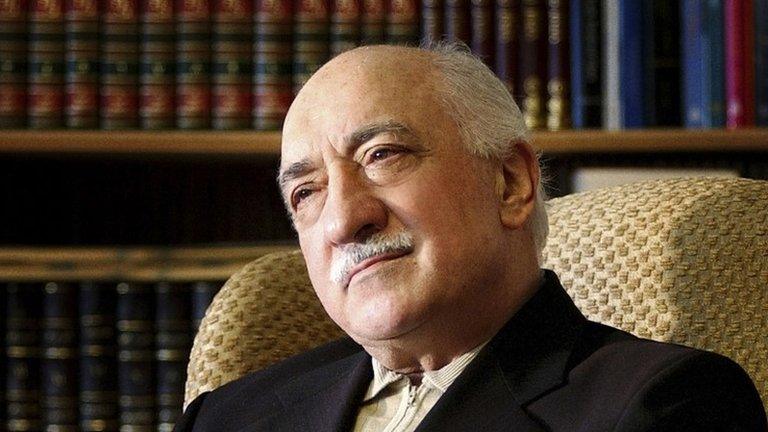Zaman newspaper: Seized Turkish daily 'now pro-government'
- Published

The picture, taken by Zaman, appears to show a wounded woman outside the newspaper offices on Saturday
Turkey's biggest newspaper, Zaman, has published an edition carrying pro-government articles, two days after being taken over by authorities.
On Friday, a court ruled that Zaman, previously linked to an opponent of President Recep Tayyip Erdogan, should now be run by administrators.
Its last edition under old ownership on Saturday said Turkey's press had seen one of its "darkest days".
Meanwhile, a newspaper set up by former Zaman staff was launched on Sunday.
Police raided Zaman's Istanbul offices late on Friday hours after a court ruling placed it under state control, but managers were still able to get Saturday's edition to print.
No reason was given by the court for the decision.
Turkish Prime Minister Ahmet Davutoglu said the takeover was "legal, not political".
"It is out of the question for either me or any of my colleagues to interfere in this process," he said in a television interview.
Water cannon and tear gas were used against some 500 Zaman supporters gathered in front of its headquarters on Saturday.
Zaman journalists who arrived to work on Saturday said their access to internal servers had been denied. Its editor-in-chief Abdulhamit Bilici and a leading columnist were also fired.
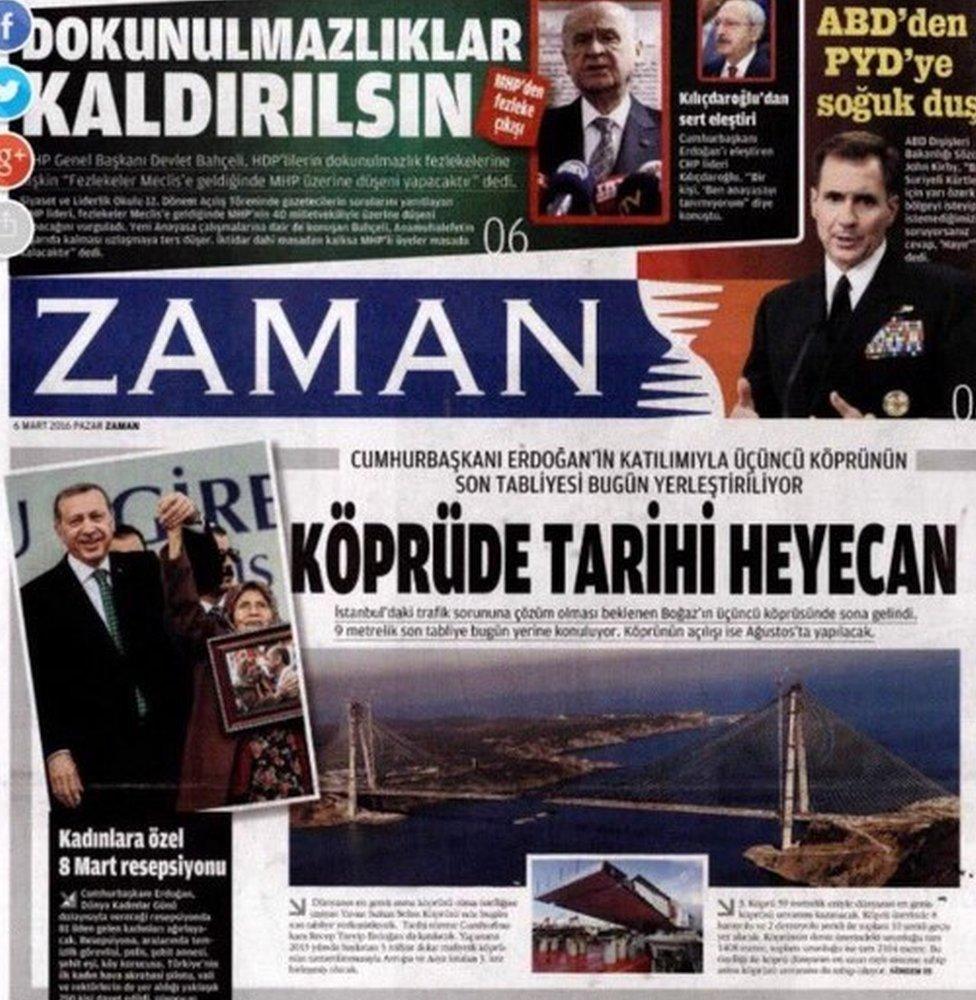
Sunday's Zaman front page carries an image of Mr Erdogan
The front page of Sunday's edition of Zaman, the first under new ownership, bears an image of Mr Erdogan and the headline "Historic excitement about the bridge". The articles says Mr Erdogan is to lay the last part of a third bridge across the Bosphorus that is close to completion.
One report in Turkey last year said the bridge may bear Mr Erdogan's name, external.
The edition was met with scepticism by journalists who used to write for Zaman, which has a readership of 650,000.
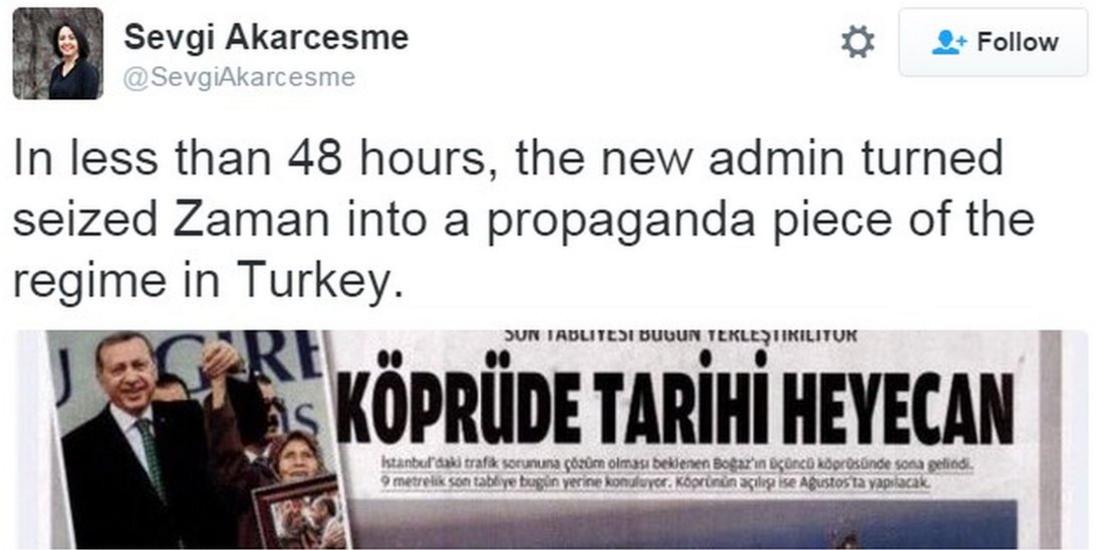
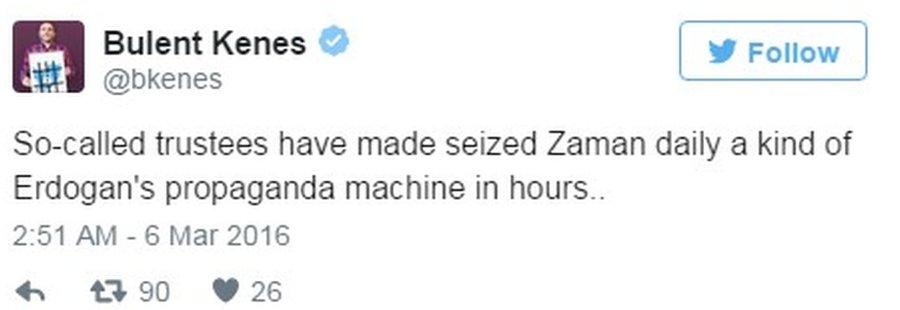
Some former Zaman staff produced a new newspaper named Yarina Bakis, or Look to Tomorrow, on Sunday.
Its front page showed an image of tear gas being fired outside Zaman's headquarters on Saturday, with the headline: "Water cannon, tear gas and rubber bullets are not enough: Throw him out!"
The newspaper said "Throw him out" was uttered by a policeman who ordered a journalist at the protest to be removed.

It is unclear how the new newspaper was published at short notice, and where it was printed.
The Twitter feed that used to belong to Zaman now redirects automatically to that of Yarina Bakis.
Zaman's website is now inaccessible, but has a holding message promising there will soon be "unbiased coverage for our readers".
The paper was closely linked to the Hizmet movement of influential US-based cleric Fethullah Gulen, which Turkey says is a "terrorist" group aiming to overthrow President Recep Tayyip Erdogan's government.
Mr Gulen was once an ally of Mr Erdogan but the two fell out. Many Hizmet supporters have been arrested.
BBC Turkish correspondent Rengin Arslan, in Istanbul, said some online commentators were criticising supporters of Mr Gulen and Zaman for ignoring instances in which voices critical of his party had themselves been punished.
Several people were hurt after police fired tear gas and water cannon
The European Union's response has been to issue weak statements of concern, the BBC's Mark Lowen says.
It is accused of acting softly on Turkey as it needs the country's support in managing the refugee crisis.
The government in Ankara has come under increasing international criticism over its treatment of journalists.
The EU's diplomatic service said that Turkey "needs to respect and promote high democratic standards and practices, including freedom of the media", while the US described the move as "troubling".

Freedom of the press in Turkey
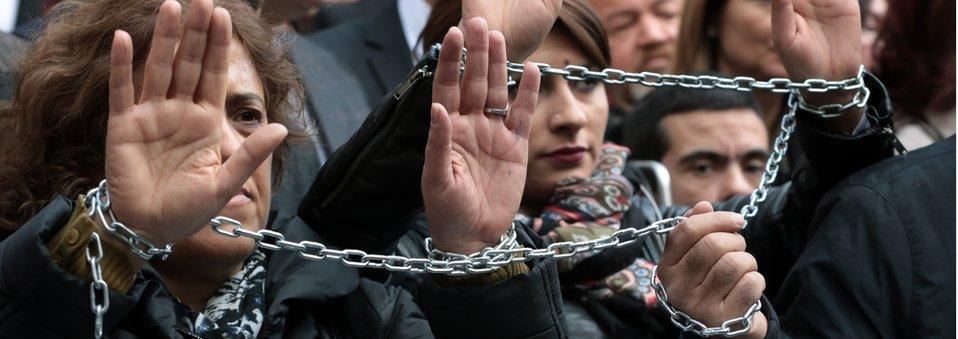
Turkey ranks 149th among the 180 countries in the Reporters Without Borders' World Press Freedom Index 2015, external
Media organisations in Turkey say that more than 30 journalists are currently behind bars; most are of Kurdish origin
The government argues journalism in Turkey is among the most free in the world

- Published5 March 2016
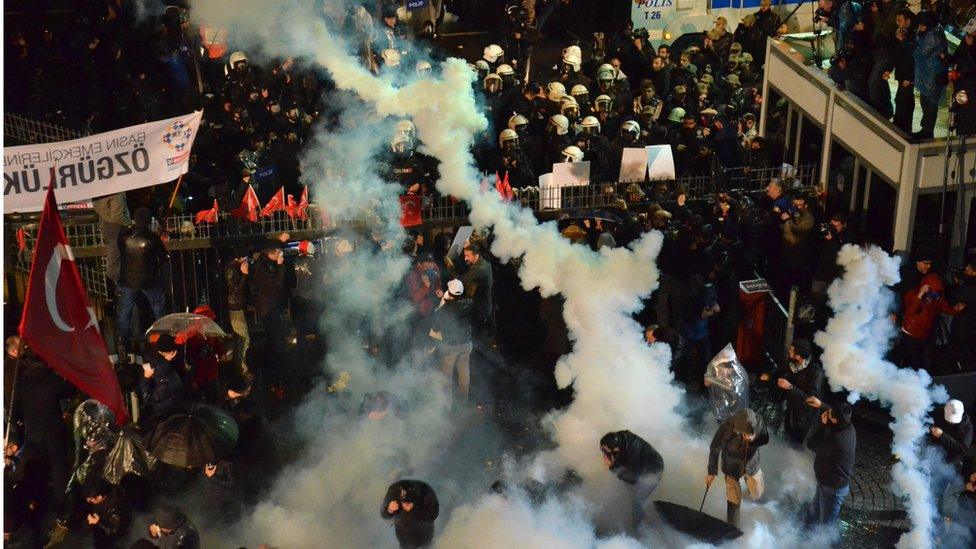
- Published4 March 2016
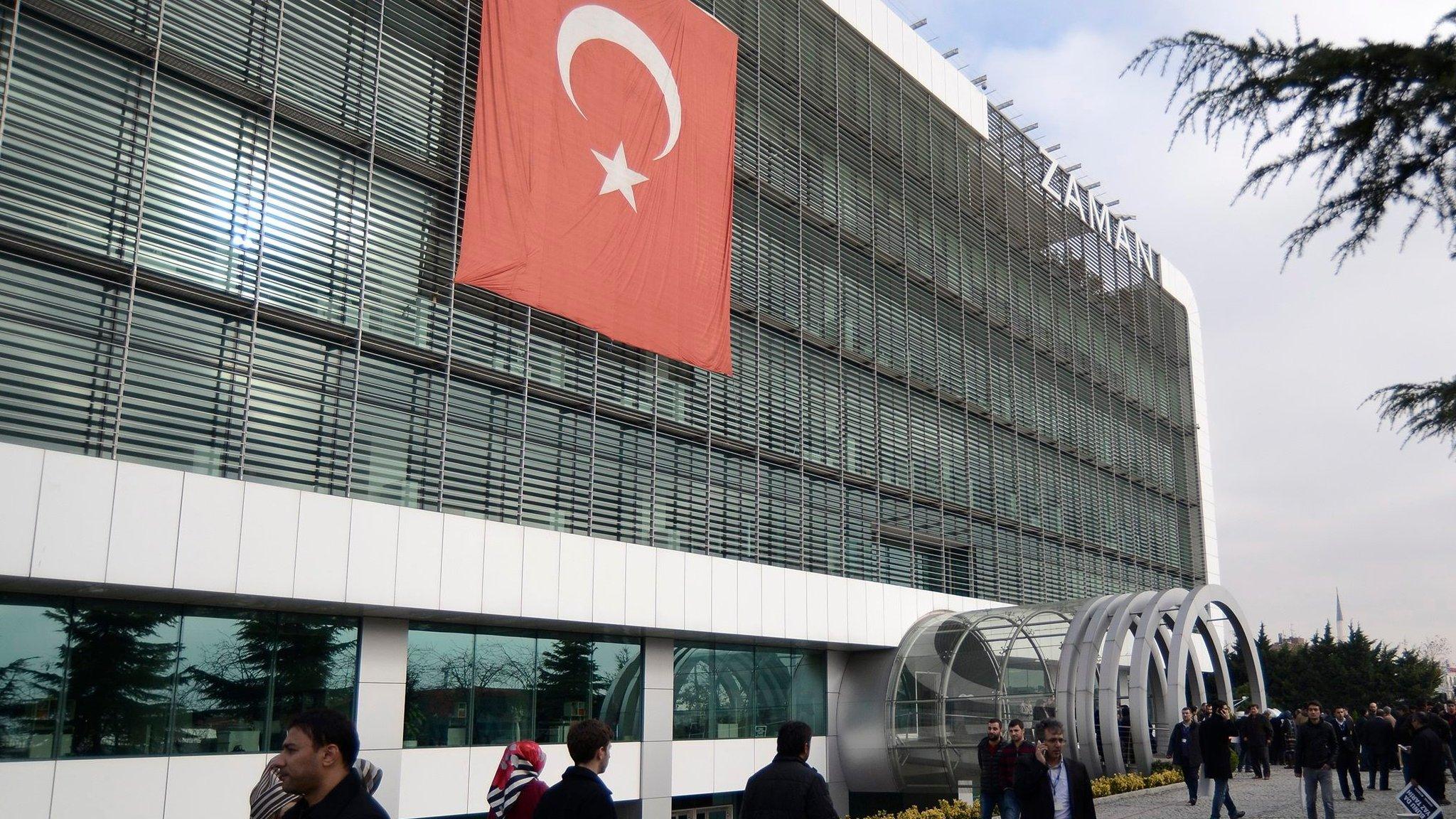
- Published27 January 2014
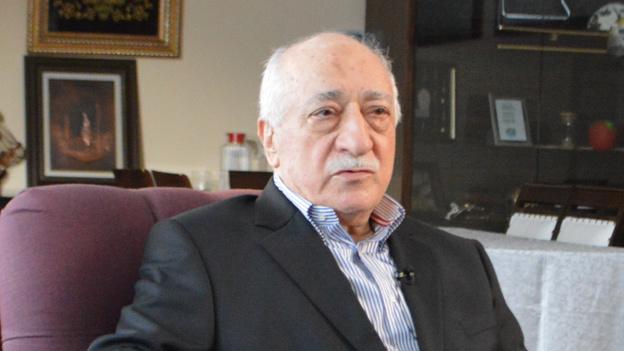
- Published18 December 2013
